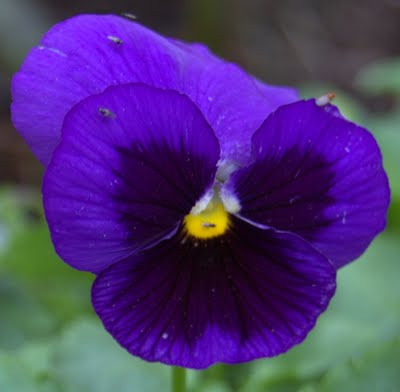#244169 - 03/31/12 02:45 PM
 Re: Water Purification Tablets: Comparison?
[Re: Byrd_Huntr]
Re: Water Purification Tablets: Comparison?
[Re: Byrd_Huntr]
|

Member

Registered: 03/03/10
Posts: 101
Loc: North Carolina
|
To remove other impurities, you will need a filter.
Excellent reminder and clarification, thank you! The survival mom blog just did a post about that very thing, improvised water filter. Three layers: grass, sand, charcoal. Do you think that a simplistic one like that would be effective in the long run (combined with boiling)? Seems pretty easy to make... or are there other variables to consider that I am too 'right-brained' to consider?
_________________________
Mother love is the fuel that enables a normal human being to do the impossible.
~Marion C. Garretty
|
|
Top
|
|
|
|
#244173 - 03/31/12 03:48 PM
 Re: Water Purification Tablets: Comparison?
[Re: Krista]
Re: Water Purification Tablets: Comparison?
[Re: Krista]
|

Geezer in Chief
Geezer
Registered: 08/26/06
Posts: 7705
Loc: southern Cal
|
A lot depends upon the nature of the impurities with which you must contend. A lot of my experience has been in relatively high mountains or lightly inhabited areas where industrial pollutants are trivial. Other locations may be different. It also depends upon whether you are talking short term exposure or long term use.
About twenty years ago, I spent a month in rural China on a caving expedition. We were way off the tourist circuit and depended exclusively on local resources and cooks. Our drinking water was treated exclusively by boiling by those cooks - standard practice for preparation of potable water at the time. Twelve of us lived locally for a month. Absolutely no cases of "Mao's revenge," which surprised me greatly. That is one reason why I am such a fan of boiling as a treatment method.
_________________________
Geezer in Chief
|
|
Top
|
|
|
|
#244178 - 03/31/12 04:14 PM
 Re: Water Purification Tablets: Comparison?
[Re: Krista]
Re: Water Purification Tablets: Comparison?
[Re: Krista]
|

Veteran
Registered: 02/20/09
Posts: 1372
|
for you personally ... the water purification tablets may work. it just takes some personal discipline.
however it has been my experience that a LOT of normal people do not like the taste of water after it has been purified by iodine. So they just won't drink it. Hence they become dehydrated, and can get sick. we are spoiled in America by the existence of vast quantities of good-tasting water (often in bottled form). Once this becomes unavailable, people often "fall apart". This is a real problem if you plan on helping your family to survive in a long-term disaster. You would think that the logical human reaction would be "OK ... I understand I need to drink, so I will do what's necessary to avoid getting dehydrated". BUT that's not actually what happens in reality. People don't understand the seriousness of dehydration, and once they get into that state - they start going downhill. It can be a serious problem.
Experiment with ways to take the taste out.
Simple additives (like Tang orange juice powder) are not a good answer.
But keep looking!
Pete2
Edited by Pete (03/31/12 04:16 PM)
|
|
Top
|
|
|
|
#244181 - 03/31/12 04:39 PM
 Re: Water Purification Tablets: Comparison?
[Re: Krista]
Re: Water Purification Tablets: Comparison?
[Re: Krista]
|

Veteran
Registered: 12/14/09
Posts: 1419
Loc: Nothern Ontario
|
As Hikemore mentioned, the whole question of drinking chemcically polluted affected water largely depends on where you are and where your intended wilderness activities will take place.
In the areas I adventure in, there is no cause for concern of drinking such polluted water. Yes there is a concern for other natural water borne hazards which is why I use the Aquatabs to treat the water.
Boiling is always an option (and a last resort for me) if you are carrying a stove or alternatively, able to light a small fire and have the time to boil the water. Keep in mind that on a long hot summer day hike, how much water 2 or more people will require. Plenty of years of personal experience has shown that these water requirements can be measured in gallons per day. Whereas using tablets, the water can be treated on the move, meaning that we refill the water bottles as we go and add an Aquatab to each bottle. After 30 minutes, the water is ready to be used and there is no delay for having to stop and boil water.
In a true wilderness survival situation, I would rather allow tablets to treat my water while my focus and energy is directed to other concerns in order to keep myself and possibly others, alive.
_________________________
Earth and sky, woods and fields, lakes and rivers, the mountain and the sea, are excellent schoolmasters, and teach some of us more than we can ever learn from books.
John Lubbock
|
|
Top
|
|
|
|
#244186 - 03/31/12 05:38 PM
 Re: Water Purification Tablets: Comparison?
[Re: Teslinhiker]
Re: Water Purification Tablets: Comparison?
[Re: Teslinhiker]
|

Geezer in Chief
Geezer
Registered: 08/26/06
Posts: 7705
Loc: southern Cal
|
Teslinhiker's post illustrates just how much circumstances can and should influence your choice of treatment method. I agree that on a long hike, particularly in the desert or during a warm/hot summer day, your consumption will be measured in gallons per day, not counting what you may consume during the evening to accomplish full rehydration.
In the desert and in any circumstance where water might be scarce, you would be prudent to carry the water (yup, all 16 pounds) with you from the beginning and then the quality of the water would not be an issue.
If all else fails, just slurp up the water from the natural source and restore your water balance. Whatever is in the water is not as bad as severe dehydration, which is deadly. I have done that a fair amount and have never regretted it.
_________________________
Geezer in Chief
|
|
Top
|
|
|
|
#244214 - 04/01/12 04:23 AM
 Re: Water Purification Tablets: Comparison?
[Re: hikermor]
Re: Water Purification Tablets: Comparison?
[Re: hikermor]
|

Enthusiast

Registered: 11/19/09
Posts: 295
Loc: New Jersey
|
If all else fails, just slurp up the water from the natural source and restore your water balance. Whatever is in the water is not as bad as severe dehydration, which is deadly. I have done that a fair amount and have never regretted it. I agree. The most common pathogens would take 3 to 5 days before the onset of symptoms, by which time you would hopefully be safe and have access to medical treatment. Also note that treatment does not necessarily remove or deactivate all organisms, it just reduces them to safe levels. So it seems the body has the ability to fight off infection, at least at lower levels of contamination. I've often wondered if a person builds-up an immunity to these threats. When I was young I'd spend most of my free time in the woods, and thought little of drinking a few handfuls of crisp, clear water from a small fast-flowing creek or stream. I don't remember ever getting sick from it.
_________________________
2010 Jeep JKU Rubicon | 35" KM2 & 4" Lift | Skids | Winch | Recovery Gear | More ...
'13 Wheeling: 8 Camping: 6 | "The trail was rated 5+ and our rigs were -1" -Evan@LIORClub
|
|
Top
|
|
|
|
#244223 - 04/01/12 02:57 PM
 Re: Water Purification Tablets: Comparison?
[Re: Mark_M]
Re: Water Purification Tablets: Comparison?
[Re: Mark_M]
|

Veteran
Registered: 12/14/09
Posts: 1419
Loc: Nothern Ontario
|
I've often wondered if a person builds-up an immunity to these threats. When I was young I'd spend most of my free time in the woods, and thought little of drinking a few handfuls of crisp, clear water from a small fast-flowing creek or stream. I don't remember ever getting sick from it. I don't think it is immunity...but luck that you never got sick. For example, Giradia is very common and millions of people are infected by it every year. From the US CDC. Giardiasis is a global disease. It infects nearly 2% of adults and 6% to 8% of children in developed countries worldwide. Nearly 33% of people in developing countries have had giardiasis. In the United States, Giardia infection is the most common intestinal parasitic disease affecting humans
Giardia infection rates have been known to go up in late summer. Between 2006-2008 in the United States, known cases of giardiasis were twice as high between June-October as they were between January-March.
Anyone may become infected with Giardia. However, those at greatest risk are:
Travelers to countries where giardiasis is common
People in child care settings
Those who are in close contact with someone who has the disease
People who swallow contaminated drinking water
Backpackers or campers who drink untreated water from lakes or rivers
People who have contact with animals who have the disease
In the context of this thread, unless it is a very dire life or death situation where you are incapacitated or do not have fire resources or water treatment tablets, it is always in the best interests of your health and well being to always treat your water while out adventuring.
_________________________
Earth and sky, woods and fields, lakes and rivers, the mountain and the sea, are excellent schoolmasters, and teach some of us more than we can ever learn from books.
John Lubbock
|
|
Top
|
|
|
|
#244228 - 04/01/12 07:04 PM
 Re: Water Purification Tablets: Comparison?
[Re: Byrd_Huntr]
Re: Water Purification Tablets: Comparison?
[Re: Byrd_Huntr]
|

Addict

Registered: 01/09/09
Posts: 631
Loc: Calgary, AB
|
Because of the name of this thread, there's one warning I feel compelled to throw in here: Neither of these tablets 'purify' water, they only 'disinfect' it to some degree. I get what you are saying about chemical contamination, but I wanted to point out that in most of the reading I've done, mostly in the context of backcountry water treatment, I've noticed the term purification is usually applied to solutions capable of rendering water safe from viruses in addition to protozoa & bacteria. See this article for an example of this usage of the term. For example SteriPens (UV), the MSR Purifier System (filter + chemical) and AquaTabs (chemical) are all considered purifiers in this context (as a side note, the full product name of the latter is actually Aquatabs Water Purification Tablets). I've never noticed any the products I've looked at marketing themselves as rendering water safe from industrial pollutants, but really they are are geared for primarily for backcountry use. Frankly, based on the product information and other reading I've done I don't know which, if any, solutions would be a good defence against industrial or chemical contamination. As a side note, I've found the following chart (taken from the article I linked to above) helpful: 
_________________________
Victory awaits him who has everything in order — luck, people call it. Defeat is certain for him who has neglected to take the necessary precautions in time; this is called bad luck. Roald Amundsen
|
|
Top
|
|
|
|
#244232 - 04/01/12 07:54 PM
 Re: Water Purification Tablets: Comparison?
[Re: Denis]
Re: Water Purification Tablets: Comparison?
[Re: Denis]
|

Geezer in Chief
Geezer
Registered: 08/26/06
Posts: 7705
Loc: southern Cal
|
I amjust now reading a source, the 2010 edition of Medicine for Mountaineering, which states, "The First Need filter has an absolute pore size of 0.4 microns; the Sawyer Viral Purifier has an absolute pore size of 0.2 microns. Both have been demonstrated to remove viruses as well as bacteria and parasites in studies conducted for the EPA." (p.66) At least in the USA, I understand virus removal is not an issue in the backcountry.
This book has a very thorough discussion of water disinfection.
_________________________
Geezer in Chief
|
|
Top
|
|
|
|
#244262 - 04/02/12 03:53 AM
 Re: Water Purification Tablets: Comparison?
[Re: hikermor]
Re: Water Purification Tablets: Comparison?
[Re: hikermor]
|

Addict

Registered: 01/09/09
Posts: 631
Loc: Calgary, AB
|
I amjust now reading a source, the 2010 edition of Medicine for Mountaineering, which states, "The First Need filter has an absolute pore size of 0.4 microns; the Sawyer Viral Purifier has an absolute pore size of 0.2 microns. Both have been demonstrated to remove viruses as well as bacteria and parasites in studies conducted for the EPA." (p.66) That's very interesting, did it by any chance cite a specific EPA study that could be looked up online for more information? I ask because it is presenting different & conflicting information than I've seen before. For example, the CDC's guide for backcountry water treatment says "Filtration is not effective in removing viruses." And in it's guide on household water treatment, it looks at different classes of filters and rates their effectiveness. It says: - microfiltration (.1 micron): not effective removing viruses
- ultrafiltration (.01 micron): moderate effectiveness removing viruses
- nanofiltration (.001 micron): very high effectiveness removing viruses
However, as far as I've seen (including the models quoted above from Medicine for Mountaineering) backcountry filters all would fall into that microfiltration category. This CDC information is consistent with the information I've seen presented by several different sources. As a side note, we mentioned chemical contamination earlier and the CDC only rates nanofiltration as moderately effective at filtering chemical contaminants. So, based on that, it seems likely that backcountry filters wouldn't do anything for water with chemical contamination. At least in the USA, I understand virus removal is not an issue in the backcountry. That's my understanding as well. I understand you are much more likely to run into water with potentially harmful bacteria or protozoa than you are to run into viral contamination. That said, viral contamination is possible mainly due to contamination from human and animal waste.
_________________________
Victory awaits him who has everything in order — luck, people call it. Defeat is certain for him who has neglected to take the necessary precautions in time; this is called bad luck. Roald Amundsen
|
|
Top
|
|
|
|
|
|
1
|
2
|
3
|
4
|
5
|
6
|
7
|
|
8
|
9
|
10
|
11
|
12
|
13
|
14
|
|
15
|
16
|
17
|
18
|
19
|
20
|
21
|
|
22
|
23
|
24
|
25
|
26
|
27
|
28
|
|
|
0 registered (),
484
Guests and
83
Spiders online. |
|
Key:
Admin,
Global Mod,
Mod
|
|
|